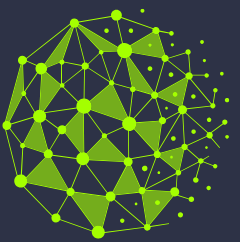Can AI project your death date?
Suppose a computer could predict your death date. While advancements in artificial intelligence and machine learning have brought us closer to developing tools that aim to achieve this, the concept still feels akin to a sci-fi movie. The idea of the AI death calculator—a system meant to forecast a person’s probability of dying depending on health and lifestyle information—is no more limited in theory than in practice. This invention is materializing and piques interest as well as significant ethical and technological concerns.
This blog explores what Death Calculator: The Future of Your Health are, how they operate, their advantages, ethical questions raised by them, and how they could affect the direction of healthcare going forward.
Describe an AI’s death calculator.
An artificial intelligence death calculator is a tool that forecasts a person’s life expectancy or chance of death at a given moment by means of artificial intelligence algorithms. It generates forecasts by means of an analysis of vast datasets comprising health history, genetics, lifestyle choices, environmental elements, and so on to find trends.
How Exactly Does It Work?
Medical records, genetic information, exercise patterns, food choices, and even stress levels are among the several data points used by artificial intelligence death calculators. Extra data might come from wearables like Apple Watches or Fitbits, which track real-time numbers, including sleep quality and heart rate.
Model of Machine Learning
To make sense of this convoluted data, the tools apply prediction algorithms, such as decision trees and regression models. Machine learning, with its capacity for extensive data processing, trains these algorithms to recognize trends that may not be immediately apparent to medical practitioners.
Accuracy of AI’s Death Calculator:
These instruments are not perfect, even if they show promise in risk analysis and prediction making. Their forecasts are probabilistic—that is, they operate in percentages and likelihoods rather than in definite results. Technology underlies AI death calculators. AI death calculators occupy the junction of modern technology and medical knowledge.
Machine learning and predictive analytics:
1. To create forecasts, artificial intelligence systems examine past data. By learning from large health records, tools such as neural networks or regression models predict outcomes, including mortality risk.
2. Source of Data AI death calculators depend on surveys, wearable health data, electronic health records, and public health statistics, among other data sources. We then anonymize and handle this data to maintain anonymity.
3. Practical Uses of Predictive AnalyticsHealthcare already applies predictive analytics to project diabetes and heart disease. The same concepts guide mortality prediction, making this technology a logical progression from other fields.
AI’s Death Calculator:
Their Advantages In many respects, artificial intelligence has transformed healthcare planning and preventative action. AI death calculators have the potential to enhance our health systems and lifestyle in various ways.
1. Raising health consciousness. Understanding possible health hazards might inspire people to start better lifestyle choices, such as regular exercise or a better diet. Usually, awareness comes first on the path to permanent transformation.
2. Early Health Problem Identification Early warning of illnesses like cancer or cardiovascular issues that can go undetected in conventional diagnostic techniques is something artificial intelligence can identify. Early discoveries can help enable quick treatments.
3. Individualized Healthcare Strategies Using these forecasts, healthcare professionals can tailor medical strategies to each patient’s unique risk factors. A smoker at high risk of lung-related issues, for example, would go through tailored examinations and tests.
4. Planning for Lifestyle and Money Knowing the estimate of your life expectancy will enable you to make more deliberate financial or personal decisions. Whether you are organizing your bucket list or preparing for retirement, these insights can be both emotional and useful.
Privacy Issues and Ethics Questions
AI’s Death Calculator raises several ethical and privacy-related issues, despite their potential benefits.
- The prospect of accuracy problems Inaccurate forecasts cause considerable worry. While a false negative can inspire a harmful sense of complacency, a false positive—predicting an earlier death than reality—could create unnecessary concern.
- Risks to privacy AI’s Death Calculator depends mostly on sensitive health data, which begs issues regarding data privacy, permission, and ownership. Who ultimately holds control over this data, and how secure is its management?
- Psychological Affective Effect If an artificial intelligence death calculator could fairly project your life expectancy, would you utilize it? While some might find the results motivating to live better, others could find them too burdensome or emotionally taxing.
- Equity and Accessibility Access issues arise because not everyone can afford or has equal access to such powerful tools. Could this widen health equity’s gaps? We must thoroughly discuss the ethical implications before allowing general acceptance.
Case Studies and Real-World Uses
- IBM Watson Safety IBM Watson has shown using extensive data that it can forecast cancer survival rates.
- Though not specifically a death calculator, it emphasizes artificial intelligence’s ability to evaluate mortality chances depending on certain conditions.
- Acute Kidney Injury (AKI): Google DeepMind’s algorithms save thousands of lives by predicting life-threatening illnesses, such as AKI, up to 48 hours ahead.
- Framingham Heart Study AI Instruments High-accuracy AI algorithms derived from the Framingham research forecast cardiovascular risks and death, therefore helping clinicians to develop sensible therapies.
AI’s Death Calculator: Future Directions
- Enhanced Technological Tools AI’s Death Calculator might incorporate further data from mental health exams, environmental quality, and social elements to offer more accurate forecasts as long as advances keep coming.
- Coordination with Medical Systems By aggregating genetic testing, wearable data, and electronic health records, artificial intelligence death calculators might complement digital health platforms and provide a coherent healthcare experience.
- Ethical Protections Regulating systems are likely to develop to ensure equitable access to these technologies, accurate transparency, and data privacy, thereby addressing fundamental ethical issues.
Final Notes:
AI’s Death Calculator raises a classic existential issue: Would you want to know the day you could die?
Emphasizing prevention, individualized treatment, and early risk identification, these instruments should transform healthcare. However, they present a range of complexity, from ethical dilemmas to privacy concerns, which require thoughtful resolution.
Would it weigh on your mind, or would knowing your expected date of death help you live more fully?
Regardless of how powerful or frightening the idea may seem, artificial intelligence is profoundly changing our understanding of health and death.
On what side of the argument do you find yourself? Underline your ideas below!





2 thoughts on “AI’s Death Calculator: The Future of Your Health”